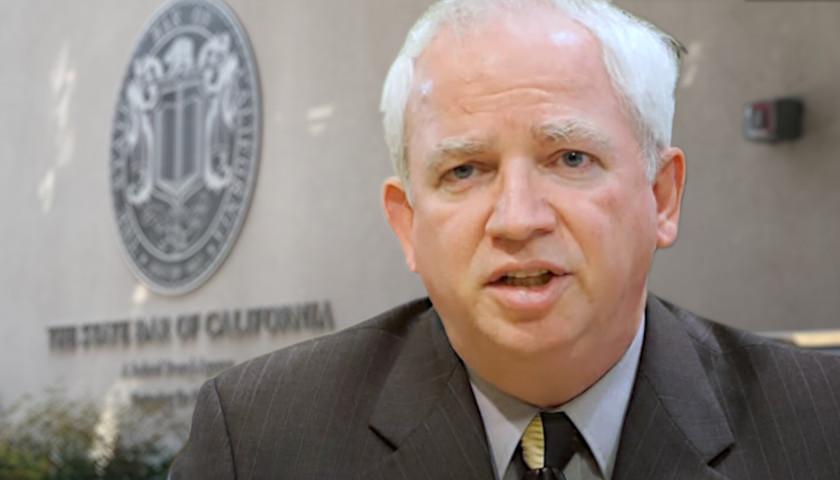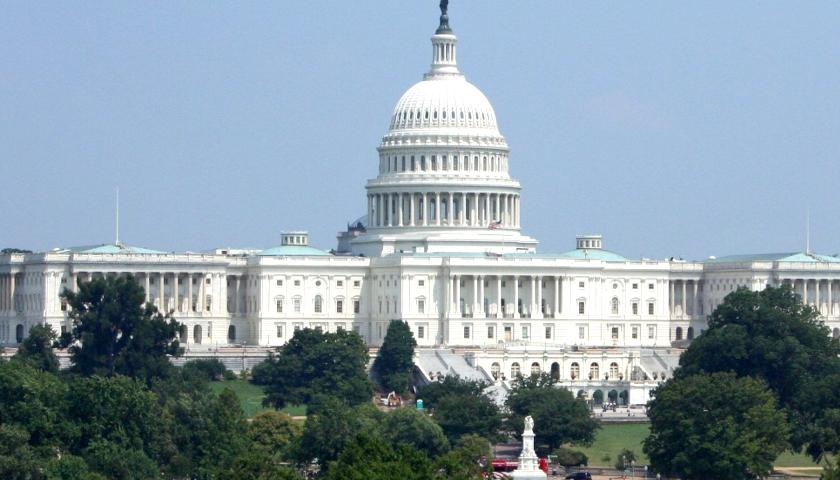LOS ANGELES, California – The first week of the disbarment hearing of Trump attorney John Eastman concluded on Friday, with State Bar of California (SBC) attorneys putting Eastman on the witness stand again along with Nevada Deputy Secretary of State for Elections Mark Waschin. The SBC continued to try and show that Eastman provided bad advice to President Donald Trump by telling him that one option for handling election fraud in the 2020 election would be to have Vice President Mike Pence reject certification of electoral votes from the disputed states.
Mark Fitzgibbons, a First Amendment attorney, said he was skeptical about the merits of the trial. “‘They’ want him punished not for any Bar violation, but for articulating credible legal bases of election fraud, illegalities, and irregularities, hence the reason to question the legitimacy of the Biden presidency,” he tweeted. ‘They’ want to whitewash reality.” The Arizona Sun Times reached out to Fitzgibbons for further comment and he responded, “They want to intimidate lawyers so they don’t work for MAGA or conservative candidates and causes.”
When SBC attorney Duncan Carling asked Eastman about remarks he’d made stating there was election fraud, Eastman did not try to back away from them. In one of his pleadings, Eastman said there was “ample fraud and illegality” in four states during the 2020 election.
Carling asked Eastman about previous statements he’d made suggesting that ballots could be disqualified in Wisconsin since they were turned into a “Democracy in the Park” event, violating the law. Carling asked Eastman if it was voter fraud, prompting Eastman to explain the differences between voter fraud, election fraud, and illegal activity. He said voter fraud refers to when a voter does something illegal with their ballot, election fraud generally refers to when officials violate election law, and illegal activity doesn’t necessarily mean either. Carling repeatedly tried to get Eastman to admit that certain actions Eastman had questioned were voter fraud, but Eastman painstakingly pointed out that was the incorrect terminology.
Carling attempted to persuade Eastman to reveal the names of statisticians and data analysts he’d spoken with regarding election fraud. Eastman refused to turn over the names, declaring, “We live in a fairly intense time of cancel culture,” and said they would not want to be revealed. An observer in the courtroom told The Arizona Sun Times he thought Carling was on a “fishing expedition” to “find more targets.”
Another issue Carling spent some time grilling Eastman on was in regards to a study by economist Charles Cicchetti contending that the odds Joe Biden won the presidency were quite minuscule, which the State of Texas referenced in a lawsuit over the election. Carling alleged that the state mischaracterized the study. An attorney who preferred not to be identified for fear of retaliation told The Sun Times, “The only difference here is that the actual stat was about the probability that the mail-in ballots would flip the way they did. Texas got the stat right, they were just sloppy on what it expressed.”
SBC counsel played a video clip of Eastman discussing advice he gave Trump and Pence on January 4, 2021. In it, he told them that rejecting certification was a worse option, since the legislatures had not not yet sent in alternate slates of electors, so a better option would be to merely delay the certification. This went against the SBC’s contention that Eastman was focused on having the administration reject the electoral slates from states suspected of election fraud.
Carling questioned Eastman about Jesse Morgan, the truck driver who said he drove ballots from New York to Pennsylvania, but didn’t ask much other than what Eastman knew about the story. Carling said the mainstream media described Morgan as a “ghost hunter.”
Waschin, who serves under Democratic Nevada Secretary of State Cisco Aguilar, said he had never interacted with Eastman. Eastman was not involved with legal issues in Nevada. Much of Waschin’s testimony consisted of stating there was “no widespread fraud” and going over what the election procedures are in Nevada. He said there were “no unusual discrepancies or issues.” Waschin said the office put out a “Facts v. Myths” sheet to refute the “ridiculous accusations” regarding voting machines. “They do not switch votes,” he asserted and said the office needed felt obligated to provide the guide from “a trusted source of information.”
At the end of the day, Judge Yvette Roland resumed talks about an issue which arose on the first day of trial, whether Eastman could reveal which ones of his 65 clients he provided advice to on rejecting the certification of electoral votes. Eastman and his attorneys objected based on attorney-client privilege. Roland appeared reluctant to allow the SBC counsel to ask.
Roland has a history of contributing to Democrats, including while as a judge. According to the FEC’s website, she contributed thousands to Barack Obama’s presidential campaign, hundreds to Gavin Newsom’s gubernatorial campaign, and more.
One observer watching the proceedings told The Arizona Sun Times that if Eastman is disbarred, it will create a “chilling precedent” for attorneys when it comes to merely advising their clients.
Eastman has a legal defense fund on GiveSendGo, which was at $385,048 out of $500,000 when the trial began, increasing to $401,799 by Friday. The trial was scheduled to run two weeks, but the judge has added a third week from August 22-25. Read the accounts from day one, day two, and day three. The trial is livestreamed and resumes Tuesday at 10:00 a.m.
– – –
Rachel Alexander is a reporter at The Arizona Sun Times and The Star News Network. Follow Rachel on Twitter. Email tips to [email protected].
Image “John Eastman” by iSCOTUS.





